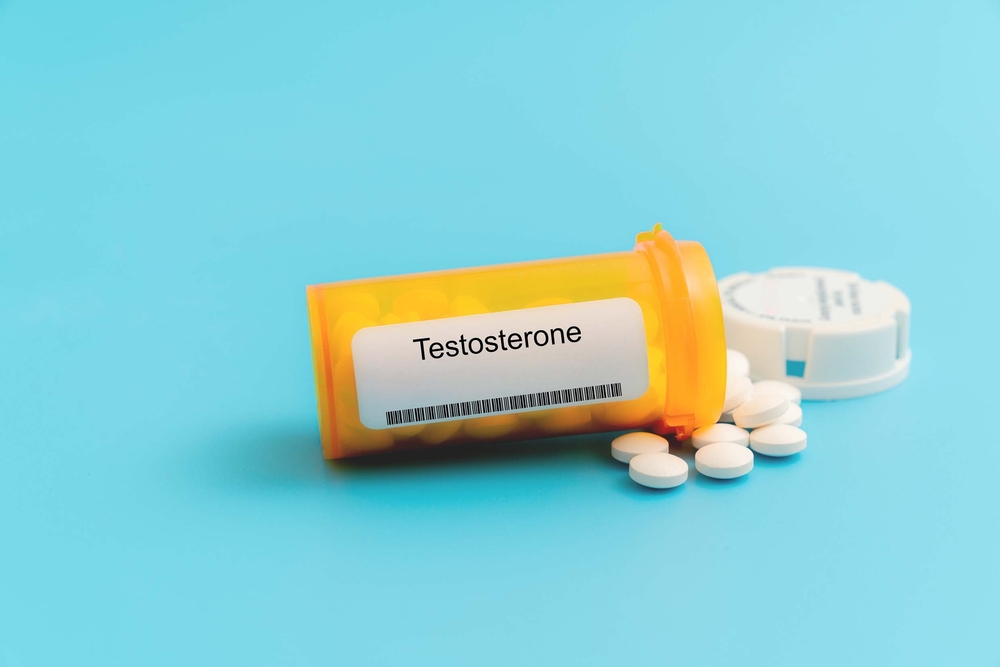
Once You Start Testosterone Therapy Can You Stop?
The Hormonal Rebalance: Understanding Your Body’s Response to Stopping TRT
What Happens When You Stop Testosterone Replacement Therapy?
Testosterone Replacement Therapy (TRT) has become a common medical treatment for men and women experiencing low testosterone levels. Testosterone is a vital hormone in the endocrine system, with a wide range of functions, including regulating hormone production, influencing muscle and bone development, supporting sexual development and function, affecting metabolism and mood, and playing a role in overall hormonal balance. It is essential for maintaining physical and emotional well-being in both men and women. While TRT can provide numerous benefits, some individuals may wonder about the consequences of stopping this therapy. It’s crucial to understand how the endocrine system responds to the absence of supplemental testosterone and the potential challenges this might pose. In this article, we will delve into the process of hormonal rebalance after discontinuing TRT and discuss the importance of continued testosterone therapy.
Understanding TRT for both Men and Women
Testosterone is a hormone produced primarily in the testes in men and, to a lesser extent, in the ovaries in women. It plays a vital role in various bodily functions, including muscle mass development, bone density, sexual function, and mood regulation. Some individuals, both men and women, experience low testosterone levels due to aging, certain medical conditions, or lifestyle factors. TRT is designed to supplement these individuals with the necessary testosterone to address symptoms and improve their overall quality of life.
The Process of Hormonal Rebalance
When a person decides to discontinue TRT, their body goes through a process of hormonal rebalance. This process can vary from person to person, depending on several factors, including the duration of TRT, the individual’s age, and their overall health. Here is a step-by-step breakdown of what typically happens during this adjustment period:
Initial Withdrawal Symptoms: In the first few weeks after discontinuing TRT, individuals may experience withdrawal symptoms. These can include fatigue, mood swings, irritability, and a decrease in libido. These symptoms occur because the body has become accustomed to the external source of testosterone, and its natural production has temporarily slowed down.
Gradual Hormonal Adjustment: Over time, the body’s endocrine system begins to adjust to the absence of supplemental testosterone. The testes or ovaries, responsible for natural testosterone production, attempt to make up for the deficiency. However, this process is gradual, and it can take several months for hormone levels to stabilize.
Hormonal Fluctuations: During the adjustment period, hormone levels may fluctuate, leading to mood swings and emotional changes. This can be challenging for some individuals, as they navigate these hormonal shifts.
Reassessment of Symptoms: As the body readjusts, it’s essential to monitor any returning symptoms of low testosterone, such as fatigue, muscle loss, or decreased libido. These symptoms can indicate whether testosterone levels are returning to a healthy range or if further intervention is needed.
The Importance of Continued Testosterone Therapy
While the process of hormonal rebalance is natural, it can be challenging for individuals who have benefited from TRT to cope with the return of symptoms. This is where the importance of continued testosterone therapy comes into play. Here are some reasons why individuals should consider ongoing treatment:
Symptom Management: Continued testosterone therapy can help maintain the relief from symptoms that TRT initially provided. This is particularly crucial for individuals who experienced a significant improvement in their quality of life while on TRT.
Quality of Life: Low testosterone levels can have a profound impact on an individual’s overall well-being, affecting their mood, energy levels, and sexual function. By continuing testosterone therapy, individuals can sustain a higher quality of life.
Health Benefits: Testosterone plays a critical role in maintaining bone density and muscle mass. For some individuals, discontinuing TRT may lead to a decline in these aspects of their health. Continued therapy can help mitigate these risks.
Monitoring and Customization: Vitality Aesthetic & Regenerative Medicine specializes in hormone therapy, offering personalized treatment plans and regular monitoring to ensure that hormone levels are optimized. This approach allows for adjustments in treatment as needed to maintain optimal health.
Why Choose Vitality Aesthetic & Regenerative Medicine for TRT
Vitality Aesthetic & Regenerative Medicine stands out as an experienced, trusted partner in hormone therapy and TRT. Their commitment to patient care and well-being sets them apart in the field of hormone specialization. Here’s why you should consider Vitality Aesthetic & Regenerative Medicine for your hormone therapy needs:
Expertise: The medical team at Vitality Aesthetic & Regenerative Medicine consists of experienced professionals who specialize in hormone therapy. They stay up-to-date with the latest research and treatment options to provide the best care possible.
Personalized Treatment Plans: Vitality Aesthetic & Regenerative Medicine recognizes that each individual’s hormonal needs are unique. They tailor treatment plans to address specific symptoms and hormone imbalances, ensuring the best outcomes. Hormones are compounded for each person’s specific needs and levels of hormone supplementation.
Comprehensive Monitoring: Regular monitoring of hormone levels is essential for successful hormone therapy. Vitality Aesthetic & Regenerative Medicine offers comprehensive testing and adjustments to optimize hormone levels and minimize side effects.
Commitment to Quality of Life: Vitality Aesthetic & Regenerative Medicine understands the importance of a high quality of life. Their goal is to help individuals achieve and maintain optimal health and well-being through hormone therapy.
Process of Rebalancing after Stopping Testosterone
The process of hormonal rebalance after discontinuing TRT can be challenging, as the body readjusts to the absence of supplemental testosterone. However, continued testosterone therapy offers a path to maintaining relief from symptoms, improving quality of life, and preserving overall health. Vitality Aesthetic & Regenerative Medicine, with its expertise, personalized treatment plans, and commitment to patient care, is a leading hormone specialist that can guide individuals on their hormone therapy journey, ensuring they achieve and maintain vitality and well-being.

